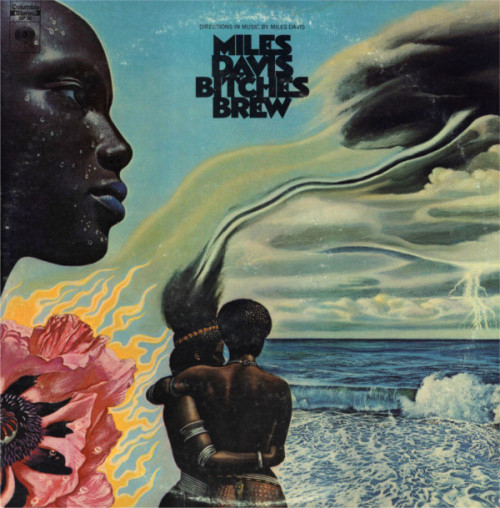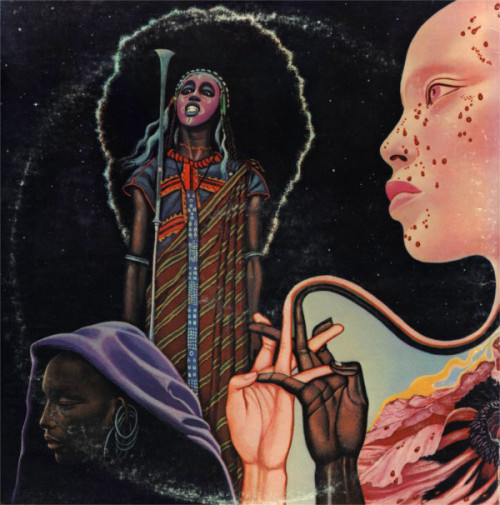“No Wonder I Am Mesmerized By Your Tongues’ Small Fires Glowing With Desire.”
“No wonder I am mesmerized by your tongues’ small fires glowing with desire.”
— M.J. Iuppa, from “Marigolds,” Amethyst Review (2022)
More Posts from Kakieoan and Others
“sharing is not simply about morality, but also about pleasure. Solitary pleasures will always exist, but for most human beings, the most pleasurable activities almost always involve sharing something: music, food, liquor, drugs, gossip, drama, beds. There is a certain communism of the senses at the root of most things we consider fun.”
— David Graeber, Debt: The First 5,000 Years








Miles Davis – Bitches Brew (Columbia GP 26, 1970). Cover by Mati Klarwein.
“…and my whole being is aching for a green, silent spot…”
— Kahlil Gibran, in a letter to Mary Haskell, from Beloved Prophet: The Love Letters of Kahlil Gibran and Mary Haskell, and her private journal








pt I selected works from my drawing final, inspired by transmission towers
polynesians: have oral history that references a faraway land of andes-like mountains in the east, cultivated sweet potato (a plant native to central america, not the pacific), literally call sweet potato by the same word used by the quechua and aymara people indigenous to the andes, left physical remains on islands a few km off the coast of chile, have genetic links with native south americans
white academics: hmmm it's very doubtful polynesians contacted south america.. they probably just stopped permanently at easter island for some reason after systematically navigating the entire south pacific. the sweet potatos floated to them across the ocean

Danielle McKinney (American, 1981) - Shelter (2023)

The oldest Mexican cookbook in the University of Texas at San Antonio’s (UTSA) collection was never meant for public consumption. Handwritten in 1789 by Doña Ignacita, a woman who probably served as the kitchen manager for a well-to-do family, the manuscript includes recipes for such specialties as “hidden vegetable stew,” or potaje escondido, and an orange-hued soup called zopa de naranja.
….
“I’ve had students in tears going through these, because it’s so powerful to see that connection with how their family makes certain dishes and where they originated,” UTSA Special Collections Librarian Stephanie Noell tells Atlas Obscura. “I want anybody with an internet connection to be able to see these works.”


-
 jules-of-many-trades reblogged this · 1 year ago
jules-of-many-trades reblogged this · 1 year ago -
 californian-odyssey reblogged this · 1 year ago
californian-odyssey reblogged this · 1 year ago -
 californian-odyssey liked this · 1 year ago
californian-odyssey liked this · 1 year ago -
 gigi-orosco liked this · 1 year ago
gigi-orosco liked this · 1 year ago -
 xmilkwee3dx reblogged this · 1 year ago
xmilkwee3dx reblogged this · 1 year ago -
 xmilkwee3dx liked this · 1 year ago
xmilkwee3dx liked this · 1 year ago -
 acephalicccc reblogged this · 1 year ago
acephalicccc reblogged this · 1 year ago -
 acephalicccc liked this · 1 year ago
acephalicccc liked this · 1 year ago -
 slutty-void reblogged this · 1 year ago
slutty-void reblogged this · 1 year ago -
 carolinawrenn liked this · 1 year ago
carolinawrenn liked this · 1 year ago -
 qcity-blackbird reblogged this · 1 year ago
qcity-blackbird reblogged this · 1 year ago -
 notfortuity reblogged this · 1 year ago
notfortuity reblogged this · 1 year ago -
 lammergeared reblogged this · 1 year ago
lammergeared reblogged this · 1 year ago -
 bunnymonk liked this · 1 year ago
bunnymonk liked this · 1 year ago -
 bluemelanchoila reblogged this · 1 year ago
bluemelanchoila reblogged this · 1 year ago -
 notyourtypicalmaki reblogged this · 1 year ago
notyourtypicalmaki reblogged this · 1 year ago -
 prinkipas11 reblogged this · 1 year ago
prinkipas11 reblogged this · 1 year ago -
 g3noos reblogged this · 1 year ago
g3noos reblogged this · 1 year ago -
 sophist-icate reblogged this · 1 year ago
sophist-icate reblogged this · 1 year ago -
 comefuochidinotte liked this · 1 year ago
comefuochidinotte liked this · 1 year ago -
 daddyniko liked this · 1 year ago
daddyniko liked this · 1 year ago -
 cursedserpent reblogged this · 1 year ago
cursedserpent reblogged this · 1 year ago -
 darling--scorpio reblogged this · 1 year ago
darling--scorpio reblogged this · 1 year ago -
 opulentings reblogged this · 1 year ago
opulentings reblogged this · 1 year ago -
 huntleysaysso liked this · 1 year ago
huntleysaysso liked this · 1 year ago -
 ritahayworrth liked this · 1 year ago
ritahayworrth liked this · 1 year ago -
 dnbutw reblogged this · 2 years ago
dnbutw reblogged this · 2 years ago -
 neverrforgetthiss liked this · 2 years ago
neverrforgetthiss liked this · 2 years ago -
 ohdaws liked this · 2 years ago
ohdaws liked this · 2 years ago -
 rsu1234 liked this · 2 years ago
rsu1234 liked this · 2 years ago -
 kakieoan reblogged this · 2 years ago
kakieoan reblogged this · 2 years ago -
 ibtissemz liked this · 2 years ago
ibtissemz liked this · 2 years ago -
 rozllin reblogged this · 2 years ago
rozllin reblogged this · 2 years ago -
 thelast-0fus liked this · 2 years ago
thelast-0fus liked this · 2 years ago -
 nunchikoi reblogged this · 2 years ago
nunchikoi reblogged this · 2 years ago -
 itsageekhaven reblogged this · 2 years ago
itsageekhaven reblogged this · 2 years ago -
 ardentspells reblogged this · 2 years ago
ardentspells reblogged this · 2 years ago -
 levcosia reblogged this · 2 years ago
levcosia reblogged this · 2 years ago -
 aphasia-world liked this · 2 years ago
aphasia-world liked this · 2 years ago -
 121297 reblogged this · 2 years ago
121297 reblogged this · 2 years ago
